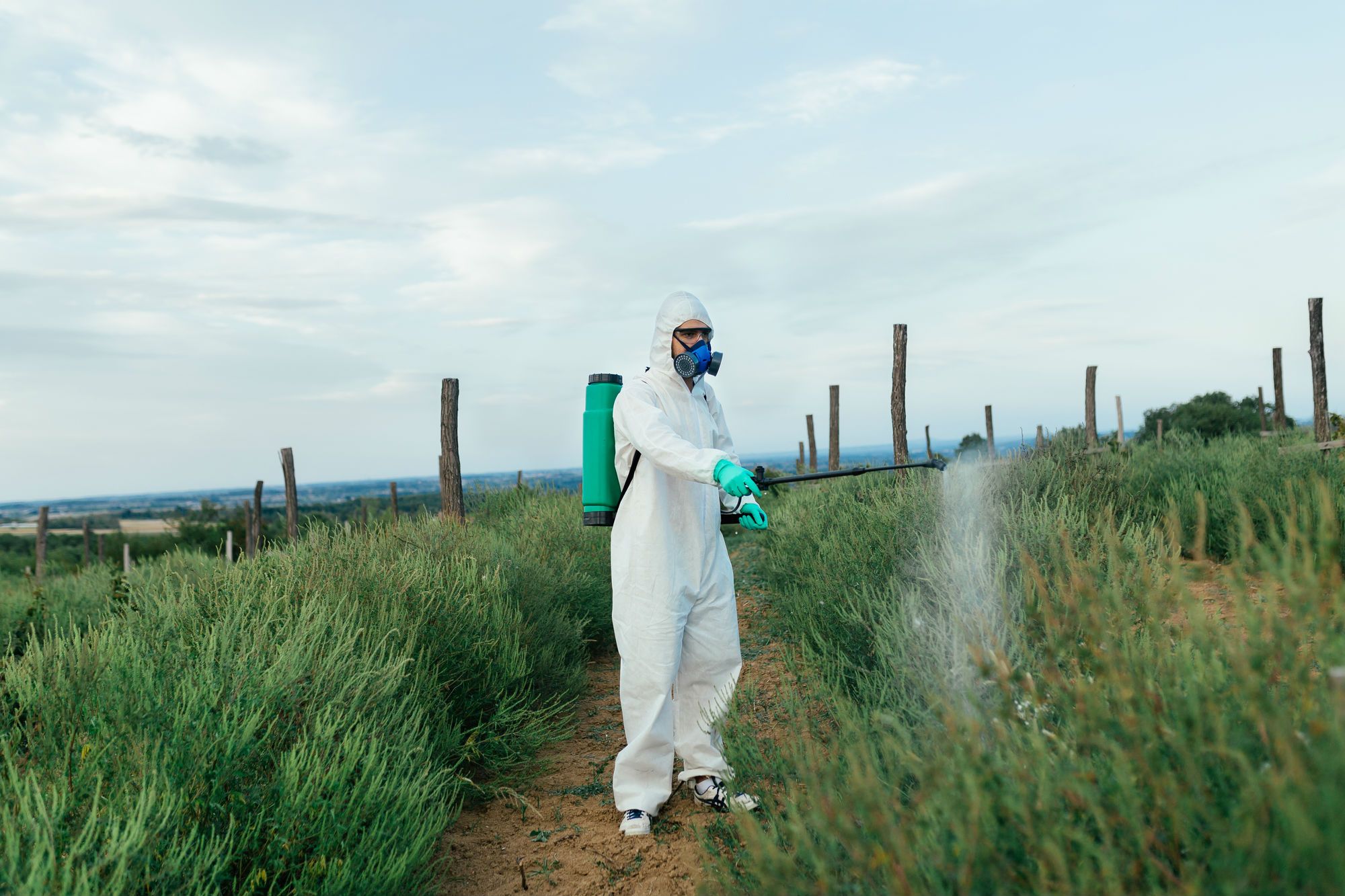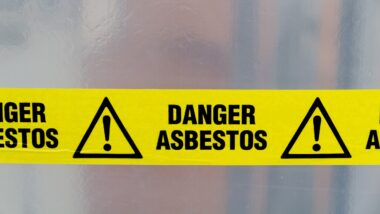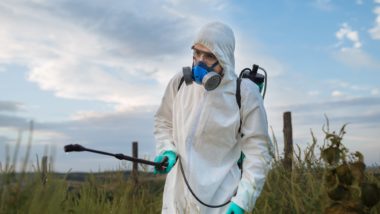Top Class Actions’s website and social media posts use affiliate links. If you make a purchase using such links, we may receive a commission, but it will not result in any additional charges to you. Please review our Affiliate Link Disclosure for more information.

Exposure to the popular weedkiller Roundup has been linked to several serious health conditions.
Because Roundup is widely used in commercial agriculture and by private consumers across the United States and the rest of the world—around 280 million pounds of glyphosate are applied in the U.S. annually, per the EPA—millions of people may have been exposed to it.
What is roundup?
Roundup is a weedkiller invented in 1974 by Monsanto — which is now owned by Bayer — with glyphosate as its primary chemical herbicide. Roundup became more widely used in the 1990s and as of 2019 was the most popular weedkiller in the world, according to The Guardian.
Worldwide, an estimated 13 billion pounds of glyphosate-based weedkillers such as Roundup were sprayed between 2005 and 2014, The Guardian reported.
Roundup is commonly sprayed on commercial crops of wheat, barley, oats, flax, peas, soybeans, and sugar cane. Additionally, Roundup is used by professional landscapers, groundskeepers, and home gardeners.
Despite its popularity, Roundup and its main active ingredient glyphosate have been linked to several serious conditions, including cancer, leading to thousands of Roundup cancer cases, NBC News reported. Despite the relatively recent wave of Roundup cancer litigation, scientists have been documenting the potential health effects of Roundup for decades.
What diseases does roundup cause?
According to a Lancet Oncology report on the effects of Roundup, many health issues can be traced back to its active ingredient, glyphosate. In March 2015, the International Agency for Research on Cancer (IARC) classified glyphosate as probably carcinogenic to humans, according to EcoWatch,
Glyphosate may interfere with the Vitamin A signaling pathway, which is important for fetal development, per EcoWatch. This disruption may result in birth defects, including an abnormally-placed urinary hole, growth hormone deficiency, a heart defect, a micro penis, or anencephaly.

Roundup may also cause several kinds of cancer. Brain, breast, prostate, lung and blood cancers all have been linked to Roundup exposure. Brain cancer may be more likely to develop in children whose parents were exposed to Roundup in the two years before the child’s birth.
Gluten intolerance — a more common reaction to glyphosate?
Roundup exposure may also lead to both gluten intolerance and celiac disease. These two disorders have grown to affect about five percent of the global population, according to the National Institutes of Health (NIH). The areas most greatly affected appear to be in Europe and North America.
The NIH suggests the overwhelming use of Roundup products containing glyphosate is the most critical factor in this epidemic. As indicated by the report, fish exposed to the chemical develop digestive symptoms remarkably similar to celiac disease, in which patients can have a life-threatening reaction upon the intake of gluten.
With celiac disease, a group of gut enzymes — the cytochrome P450 enzymes — fail to function properly. Glyphosate has been pinpointed as inhibiting these enzymes, as well. P450s help with the production of bile acid and gut sulfate supplies. Additionally, they help activate Vitamin D3, help to process Vitamin A, and negate the effects of environmental toxins.
Another way celiac disease and glyphosate exposure mirror each other is how they affect reproduction. For those with celiac disease, the ability to get pregnant is more difficult, and the ability to carry a child to term may also be compromised.
The NIH article questions whether the proportion of glyphosate residue in primary crops, such as wheat, is caused by crop desiccation and sparking a rise in gluten processing disorders. As some farmers spray Roundup on crops just before harvest to dry them out, a high level of the chemical in the weed killer may be present in food made from those crops.
Non-Hodgkin’s lymphoma and glyphosate
A common disease associated with glyphosate in Roundup is non-Hodgkin’s lymphoma. Celiac disease sufferers also are at much higher risk of being diagnosed with this cancer, which is associated with the overproduction of abnormal white blood cells known as lymphocytes.
Non-Hodgkin’s lymphoma develops in the lymphatic system, the part of the body responsible for fighting off diseases. Tumors caused by non-Hodgkin’s lymphoma develop from white blood cells. Although the cancer starts in the white blood cells, it may spread to other areas of the body, including the tonsils, spleen, and bone marrow. This can cause symptoms such as swollen lymph nodes, abdominal pain, fever, fatigue, night sweats, and more.
It is likely non-Hodgkin’s lymphoma caused by Roundup exposure takes years or even decades to develop. People who work in occupations that routinely use Roundup may be at additional risk of developing cancer due to long-term exposure. Those with common occupations that may potentially increase the likelihood of Roundup-related diseases include commercial farmers, parks and recreation workers, landscapers, golf course attendants, and other agricultural workers. Home or hobby gardeners may also be at risk. The chemicals are often sprayed on the leaves of plants, and this spray may easily be inhaled, ingested, or absorbed through the skin if the worker does not wear personal protective equipment.
Several alleged victims of Roundup-related non-Hodgkin’s lymphoma have won lawsuits against the manufacturers of the weed killer. Victims who pursue litigation regarding their diseases and injuries may be able to recover compensation for their pain, suffering and applicable medical expenses. In some cases, juries have awarded plaintiffs multimillion-dollar settlements.
Roundup lawsuits and settlements
Monsanto and Bayer are facing approximately 11,000 lawsuits related to glyphosate. Several cases in the past year have ended with Bayer being ordered to pay large financial awards to plaintiffs.
However, Bayer hasn’t taken these verdicts without protest and has appealed several jury awards. In August, Bayer petitioned the U.S. Supreme Court to reverse a California appeal decision by the Ninth Circuit Court of Appeals.
Bayer has agreed to pay $45 million to resolve false advertising allegations surrounding Roundup weed killer. Personal injury claims still remain against the company.
If you’ve developed any of the serious health conditions listed above after exposure to Roundup, you may be able to hire an attorney and file a class action lawsuit against Bayer and Monsanto. Affected consumers may be able to pursue compensation for injuries, pain and suffering, medical expenses, and loss of income or earning capacity.
If you or a loved one developed cancer after using Roundup as a farm worker or home gardener, you may have a legal claim. Legal migrant farm workers may also seek help. Learn more by filling out the form on this page for a FREE case evaluation.
ATTORNEY ADVERTISING
Top Class Actions is a Proud Member of the American Bar Association
LEGAL INFORMATION IS NOT LEGAL ADVICE
Top Class Actions Legal Statement
©2008 – 2024 Top Class Actions® LLC
Various Trademarks held by their respective owners
This website is not intended for viewing or usage by European Union citizens.
Get Help – It’s Free
For the most up-to-date information on this case, click here.












